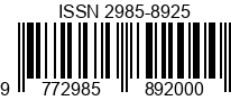Penerapan Asas Ultra Petitum Partium di Pengadian Agama Perspektif Hukum Islam
DOI:
https://doi.org/10.54298/tarunalaw.v2i02.209Keywords:
ultra petitum partium, islamic law, religious courtsAbstract
This research examines the application of the ultra petita partium principle in the Religious Courts from the perspective of Islamic law, namely a principle that prohibits judges from deciding cases beyond what is demanded by the parties to the case. This principle is one of the important principles held in religious justice. This research is based on legal research with the category of library research. The approach used in this research is a normative juridical approach. The results of the research show that basically the principles of justice, equality and non-burdensomeness in Islamic law are closely related to the application of the principle of ultra petitum partium. By ensuring that every individual is treated equally and that no decision exceeds the demands submitted, the Religious Courts can maintain fairness and integrity in every decision they make. However, there are exceptions where judges are deemed not to have violated the principle of ultra petitum partium when proceeding in the Religious Courts, especially in divorce cases regarding determining the maintenance of the wife and children who must be borne by the husband during the divorce lawsuit as stated in the provisional decision. Even without a provisional decision from the wife, the judge can issue a provisional decision.
References
Abdul, Manan. (2000). Penerapan Hukum Acara Perdata Di Lingkungan Peradilan Agama. Yayasan Al Hikmah: Jakarta.
Asniah, Yeni Huriani, and Eni Zulaiha. "KESETARAAN GENDER DALAM PERSPEKTIF HUKUM ISLAM". The Indonesian Journal of Islamic Law and Civil Law 13, no. 1 (2023) https://doi.org/10.15575/socio-politica.v13i1.25388.
Hartini. "PENGECUALIAN TERHADAP PENERAPAN ASAS ULTRA PETITUM DI PENGADILAN AGAMA". Mimbar Hukum 21, no. 2 (2009), https://doi.org/10.22146/jmh.16271.
Harun, N. "KEADILAN DALAM PERSPEKTIF HUKUM ISLAM". I’tisham: Journal of Islamic Law and Economics 1, no. 2 (2022).
Konstitusi, Tim Penyusun Hukum Acara Mahkamah. (2010). Hukum Acara Mahkamah Konstitusi. Sekretariat Jenderal Dan Kepaniteraan Mahkamah Konstitusi: Jakarta.
Mahkamah Agung, R. I. (2013). Pedoman Pelaksanaan Tugas Dan Administrasi Peradilan Agama. Direktorat Jendral Badan Peradilan Agama: Jakarta.
Mertokusumo, Sudikno. (2010). Mengenal Hukum Suatu Pengantar. Universitas Atmajaya: Yogyakarta.
Mertokusumo, Sudikno. (2009). Hukum Acara Perdata Indonesia. Liberty: Yogyakarta.
Ramulyo, M. Idris. (1999). Beberapa Masalah Tentang Hukum Acara Perdata Peradilan Agama. Ind-Hill: Jakarta.
Ranuhandoko, I.P.M. (2000). Terminologi Hukum. Jakarta: Sinar Grafika.
Soepomo, R. (2002). Hukum Acara Perdata Pengadilan Negeri. Pradnya Paramita: Jakarta.
Subagyono, Bambang Sugeng Ariadi Johan Wahyudi, and Razky Akbar, "KAJIAN PENERAPAN ASAS ULTRA PETITA PADA", Yuridika 29, no. 1 (2014), https://doi.org/10.20473/ydk.v29i1.360
Sutiyoso, Bambang. (2007). Metode Penemuan Hukum. UII Press: Yogyakarta.
Tjtrosoedibyo, R., dan Subekti. (1979). Kamus Hukum. Pradnya Paramita: Jakarta.
Yahya Harahap, Muhammad. (2008). Hukum Acara Perdata Tentang Gugatan, Persidangan, Penyitaan, Pembuktian Dan Putusan Pengadilan. Sinar Grafika: Jakarta.
Zainal, F. Legal Reasoning Terhadap Batasan Asas Ultra Petitum Partium Dalam Putusan Perkara Perdata. Journal of Lex Theory (JLT) 3, no.1 (2022), https://doi.org/10.52103/jlt.v3i1.968.
Downloads
Published
How to Cite
Issue
Section
License
Copyright (c) 2024 Larasati Fitriani Asis

This work is licensed under a Creative Commons Attribution-ShareAlike 4.0 International License.
Authors who publish with this journal agree to the following terms:
- Authors retain copyright and grant the journal right of first publication with the work simultaneously licensed under a Creative Commons Attribution-ShareAlike that allows others to share the work with an acknowledgement of the work's authorship and initial publication in this journal.
- Authors are able to enter into separate, additional contractual arrangements for the non-exclusive distribution of the journal's published version of the work (e.g., post it to an institutional repository or publish it in a book), with an acknowledgement of its initial publication in this journal.
- Authors are permitted and encouraged to post their work online (e.g., in institutional repositories or on their website) prior to and during the submission process, as it can lead to productive exchanges, as well as earlier and greater citation of published work (See The Effect of Open Access).














